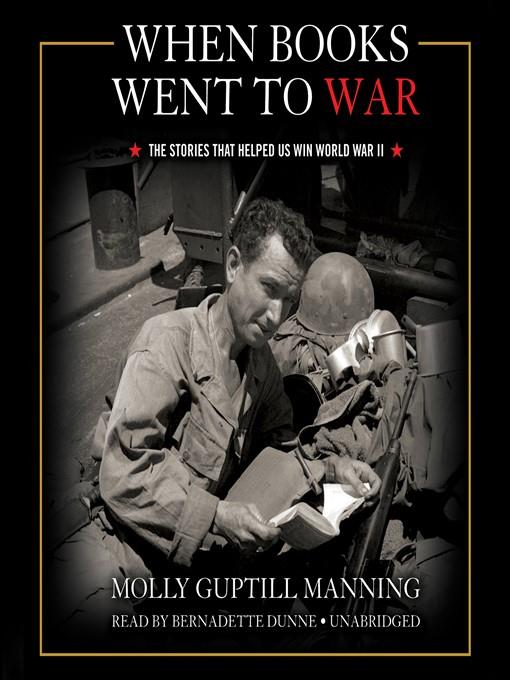
When Books Went to War
The Stories That Helped Us Win World War II
کتاب های مرتبط
- اطلاعات
- نقد و بررسی
- دیدگاه کاربران
نقد و بررسی

Narrator Bernadette Dunne energetically delivers the audiobook of how the the U.S. and its Allies defeated the book burners during WWII. What hasn't been known until this book came along was that we did it partly by giving books to every GI who wanted them. This not only gave the soldiers something to do but also strengthened the publishing industry and reinforced the idea that reading is a vital activity for an educated citizenry. The program, like the war, turned out to have positive long-term effects on the country. Dunne varies her husky pitch and tone, enunciating every word. She doesn't have to create any characters, as the book is narrative history, but she does highlight the sources and sets them apart through pauses and changes in emphasis. R.I.G. © AudioFile 2015, Portland, Maine

December 15, 2014
Supplying American soldiers with reading material has long been a modest priority, but nothing compares to the massive, WWII operation that sent over 140 million books to U.S. troops. Manning (The Myth of Ephraim Tutt), an attorney for the U.S. Court of Appeals, begins this delightful history of a little-known aspect of the war in 1940, with America scrambling to build an army from scratch. Officers responsible for morale noticed that post libraries showed "circulation rates so staggering that it was a wonder the print had not been wiped clean from the pages." Grassroots campaigns produced an avalanche of donations, mostly hardcovers, appropriate for libraries but hopelessly bulky for a frontline soldier. In 1942, publishers put their heads together and Manning delivers an engrossing story of the result: a compact paperback designed to fit into a soldier's pocket. This legendary Armed Services Edition became "the most significant project in publishing history." Over 1,300 titles poured overseas to an enthusiastic reception, and "there was a book for every taste, whether a man preferred Sad Sack comics or Plato." The usual Congressional diehards aside, censorship was minimal. Manning's entertaining account will have readers nostalgic for that seemingly distant era when books were high priority.

March 15, 2015
Manning (The Myth of Ephraim Tutt) here presents a marvelous story of the Armed Services Editions (ASE) of books that were distributed to GIs during World War II. The ASE plan ultimately gave away, between 1943 and 1947, nearly 123 million copies of 1,322 works. These special editions were smaller paperbacks that could be tucked in a pocket or folded inside a backpack. Manning's fascinating history covers the impact on the world of Nazi book burning, details of the inner workings of the national contribution to this important war effort, and interesting aspects of how the campaign was organized and operated. The author includes many excerpts from GI diaries and letters demonstrating how much it meant to the men to receive one of the books. Bernadette Dunne's solid, energetic reading nicely varies in the conveying of the personal anecdotes and sustains listener interest throughout. VERDICT Manning's work is a shining testament that provides for book lovers an informative account of how reading literally saved the sanity of hundreds of thousands of soldiers. Note that the print edition contains an appendix of all the titles distributed during the war, which is lacking here. ["Highly readable and extremely appealing, this book is perfect for any bibliophile or historians interested in the stories from the home front," read the review of the Houghton Harcourt hc, LJ 11/15/14.]--Dale Farris, Groves, TX
Copyright 2015 Library Journal, LLC Used with permission.

























دیدگاه کاربران